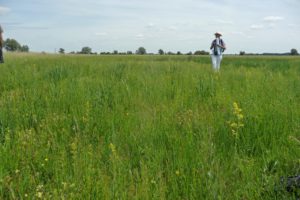Here’s a piece by our Chief Exec Miles King:
The Romans knew it as Solstitium. We call it the Solstice: from Sol; the Sun, and sistere; which means stopped, stationary.
The Sun stops in the sky. And what a sun it is, this Summer. The sun has beat down on us. Temperatures climb. Everyone who can, goes to the beach. Given a small drink, plants will thrive. Otherwise they hunker down, drawing in their leaves and waiting. The humming-bird hawk-moth, which makes its way north to Britain every year, has arrived in the garden and feeds frantically from Buddleia blossoms. The sun is so strong, and the temperatures are so hot (28C), that the School postpones its Sports Day. Is this how we venerate the sun now, by choosing to avoid it?
Our ancestors knew nothing of clocks, atomic or mechanical. They knew nothing of local time or Railway Time. It didn’t matter to them whether New York was 12 hours behind Beijing. But they did know that, on a certain day, in the height of Summer, the sun climbed, and climbed, and stopped in the sky. This was such an important event in the year that they built special places that would help them predict when the day was coming, and when it had arrived. Align two stones with a point on the horizon… with time these places took on a special meaning of their own, the two simple stones were added to, rituals were created to make the day even more special. Stones became stone circles. Stone circles attracted pilgrims attending festivals. Villages were built to supply the needs of those attending the festivals. Ok perhaps this is all speculation.
But there is something within us that needs, craves special days. We have a yearning to come together to celebrate – what? Perhaps, just celebration itself. The Solstice. Christmas, New Year, Eid, Hanukkah.
While Christmas is still a big festival in Britain, the Solstice is a pretty minor one. Is this because it is essentially a festival to celebrate something in nature, rather than a human-created religion? Are we a bit too embarrassed here in Britain to take part in a new celebration, create new ceremonies?

this Rhine flood-meadow in Hessen is full of rare wildflowers, but was an arable field only 20 years ago. © Miles King
I was in Germany a couple of weeks ago looking at the fantastic work being done to restore the historic flood meadows of the Rhine. Most had been lost, converted to agriculture. And as the meadows disappeared, so did the wonderful variety of different wild flowers that used to grow in them. About twenty years ago a project started to create new flood meadows, by taking hay from old ones and spreading it onto arable fields. 20 years later it has been more successful than anyone could have imagined, and hundreds of hectares of new meadows have been created.
This post first appeared on the Lush website

Comments are closed.